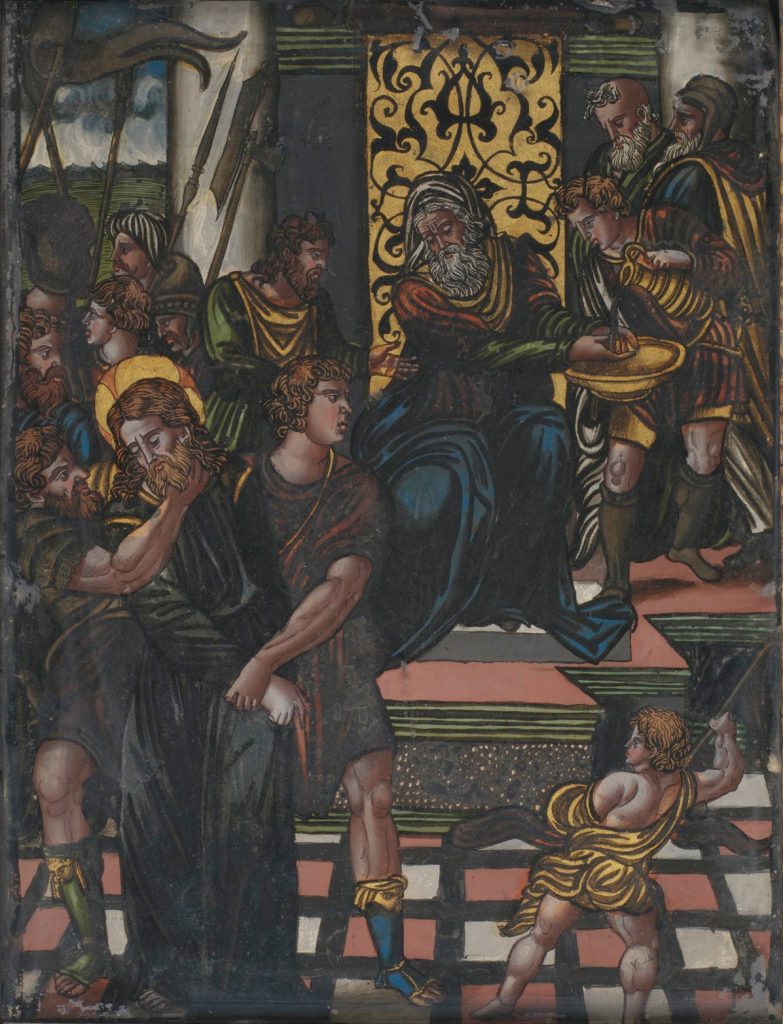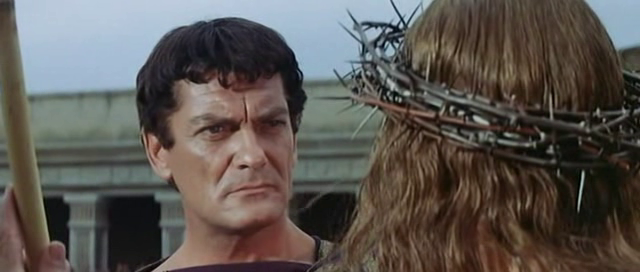 any people are not aware of who actually crucified Jesus Christ. Some think it was just a simple Roman soldier, but no. The man who decided Jesus’ faith was much higher in power. What is more interesting is not only his character but what actually happened to him after. Certainly a genuine historical character, Pontius Pilate. We know this because, according to an etched limestone slab discovered in 1961 at Caesarea Maritima (present-day Israel), he served as the Roman governor of Judaea during the period that Jesus was alive and under the rule of Emperor Tiberius. In Rome, antiquated books with his governorship’s records have also been discovered.
any people are not aware of who actually crucified Jesus Christ. Some think it was just a simple Roman soldier, but no. The man who decided Jesus’ faith was much higher in power. What is more interesting is not only his character but what actually happened to him after. Certainly a genuine historical character, Pontius Pilate. We know this because, according to an etched limestone slab discovered in 1961 at Caesarea Maritima (present-day Israel), he served as the Roman governor of Judaea during the period that Jesus was alive and under the rule of Emperor Tiberius. In Rome, antiquated books with his governorship’s records have also been discovered.
Pontius Pilate

Pontius Pilate was a Roman governor who governed the province of Judaea from 26 to 36 AD. He is most famously known for his role in the trial and crucifixion of Jesus Christ, as recorded in the New Testament of the Bible.
Pilate was appointed by the Roman emperor Tiberius as governor of Judaea and was tasked with maintaining order and control over the Jewish population. However, his rule was marked by tension and conflict with the Jewish religious leaders, as he was seen as a ruthless and oppressive ruler.
The most significant event of Pilate’s governorship was the trial and crucifixion of Jesus Christ. The Bible accounts that Jesus was arrested by the Jewish authorities and brought before Pilate, who was pressured by the Jewish leaders to sentence Jesus to death. Pilate initially tries to avoid the responsibility, but eventually gives into the pressure and orders Jesus to be crucified. The Bible also records that Pilate washed his hands of the affair, symbolically absolving himself of the guilt of Jesus’s death.
The historical existence of Pontius Pilate is confirmed by several historical sources outside the Bible, such as the writings of the Roman historian Tacitus and the Jewish historian Josephus. They also mention the tensions between Pilate and the Jewish leaders, and his reputation for being ruthless and brutal.
The exact role of Pilate in the trial and crucifixion of Jesus is a matter of debate among scholars. Some believe that Pilate was a reluctant participant in the affair, pressured into sentencing Jesus to death by the Jewish leaders. Others argue that Pilate was an active participant in the trial and crucifixion, viewing Jesus as a political threat to Roman rule.
Regardless of his role in the trial and crucifixion of Jesus, Pilate’s legacy is forever linked to one of the most significant events in human history. In the Christian tradition, he is remembered as the governor who sentenced Jesus to death, and his name is forever associated with the crucifixion of Jesus Christ. In the Western world, the phrase “to wash one’s hands of” originates from Pilate’s statement “I am innocent of this man’s blood”
In conclusion, Pontius Pilate was a Roman governor who governed the province of Judaea from 26 to 36 AD. He is most famously known for his role in the trial and crucifixion of Jesus Christ, as recorded in the New Testament of the Bible. The historical existence of Pilate is confirmed by several historical sources, and his legacy is forever linked to one of the most significant events in human history. The exact role of Pilate in the trial and crucifixion of Jesus is a matter of debate among scholars.
What happened to him after the Crucifixion?
The majority of historical accounts claim that Pilate and the Roman Empire as a whole did not experience any significant effects from the alleged miracle of Christ’s resurrection in 30 or 33 AD. The following few years were routine for them.

As mentioned above, The Four Gospels may have insisted that Pilate was only a ruler who was readily influenced by the populace, but other historical (non-religious) sources claim that he was generally rather callous and harsh. There were many more alleged rebels who later suffered the same fate as Jesus under his authority. You see, only its residents were subject to the rules of the Roman Empire, which set down the proper penalties for each offense.
The Jewish philosopher Philo of Alexandria provided evidence for this claim in his writings, which summarised the governor’s rule in 50 AD as being characterized by “briberies, insults, robberies, outrages, and wanton injuries, executions without trial, constantly repeated, ceaseless and supremely grievous cruelty.”
Various historical documents also describe how Pilate once embezzled money from a Jewish temple and used it to construct an aqueduct to Jerusalem. When the locals learned, they demonstrated in front of Pilate’s town hall. Thus, he sent troops disguised as citizens to enter the unarmed gathering before using clubs to bludgeon a number of the demonstrators to death.
As you can undoubtedly see by this point, Pilate was not at all a kind or popular ruler. But his worst mistake came when a group of Samaritans went in search of relics that Moses was reputed to have buried close to Mount Gerizim. Even though the Samaritans were unarmed, Pilate dispatched his men to slaughter them because he thought they were planning an uprising.
Later, some of the survivors reported this to Lucius Vitellius, the Roman governor of Syria, and Pilate was swiftly brought back to Rome to stand trial before Tiberius. His tenure as governor, therefore, came to an end in 36 AD. But as he was traveling, Tiberius passed away from old age and was succeeded by Caligula.
Since Caligula was not particularly interested in legal problems and the majority of Roman emperors at the time were not accustomed to upholding all the appointments made by their forefathers, the trial was never held.
Pilate just left politics and supported himself on a state pension and the money he had stolen from the Judaeans. He passed away at an unknown time, either in Switzerland or modern-day France.
Pontius Pilate was given new responsibility for Jesus’ execution when the Roman Empire ultimately adopted Christianity. He was killed or committed suicide after returning to Rome, according to new texts written by monks, who said that he had been chastised by God. However, the harm had already been done with regard to the Gospels’ Jewish blaming.
In reality, for all the crimes he had committed, Pilate never suffered any punishment.
Avid Writer with invaluable knowledge of Humanity!
Upcoming historian with over 30 million views online.
“You make your own life.”





